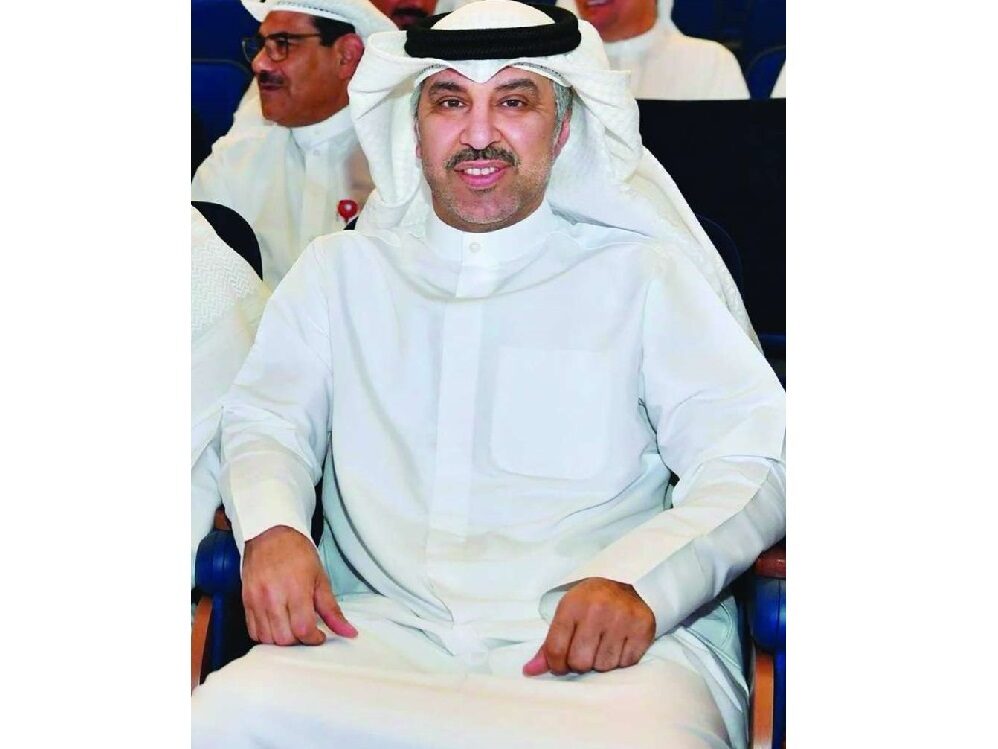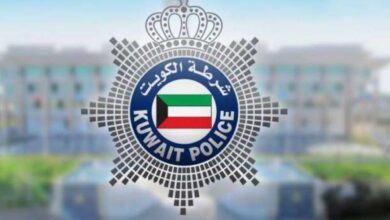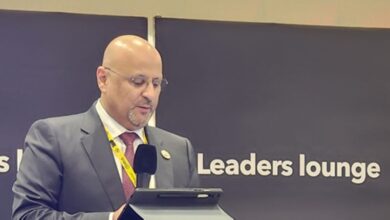Hajj pilgrims exempt from biometric fingerprinting appointments
Muhammad Al-Saeedi, the observer of the Supreme Committee for Hajj and Umrah, confirms that the mission teams are working diligently and with great effort.

-
The Ministry of Endowments and Islamic Affairs regularly holds the enlightenment meeting every year with the aim of sending awareness and guidance messages to the members of the mission and learning about the specializations of all the teams and committees.
As the time for pilgrims to travel to the Holy Land approaches, the Ministry of Endowments and Islamic Affairs announced its agreement with the Ministry of Interior “to exempt pilgrims from needing a prior appointment for biometric fingerprinting.” This exemption applies if the applicant presents a certificate from the ‘Sahel’ application confirming their registration for Hajj to whom it may concern.
The ministry stated in a statement that “this comes based on its vision of leadership in Islamic work and its endeavor to provide the best services to the guests of God, fulfilling its strategic partnership with state agencies to overcome all obstacles for the guests of God.”
In a related context, Muhammad Al-Saeedi, the observer of the Supreme Committee for Hajj and Umrah and head of the administrative services team in the Hajj mission, praised the enlightening meeting organized by the Hajj and Umrah Department in the Ministry of Endowments. The meeting was held last Sunday for members of the mission and was attended by the head of the mission and acting Undersecretary of the Ministry of Endowments, Badr Al-Mutairi, as well as the deputy head of the mission, Muhammad Al-Mutairi, along with the heads and members of the participating teams and committees.
Al-Saeedi explained in a press statement that “the Ministry of Endowments regularly holds the enlightenment meeting every year with the aim of sending awareness and guidance messages to the members of the mission and learning about the specializations of all the teams and committees. This is especially important since the responsibility placed on them is significant in serving the guests of God from Kuwait.”
He stated that all teams and committees in the mission are well aware of the competencies and tasks entrusted to them according to Ministerial Resolution 743/2019. He noted that “there are many committees that make up the mission, and through them, the members work diligently and diligently. These include the Media Committee, the Supervision Committee, the Evaluation Committee, the Administrative and Technical Support Committee, the Public Relations Committee, the Sentiments Committee, the Airport Committee, the Transportation Committee, the Housing Services Committee, the Mission Headquarters, the Contracts Follow-up Committee, as well as the Finance Committee.” Al-Saeedi also touched on the competencies of those teams and the tasks assigned to them.
Responsibilities of medical services team:
- Providing comprehensive healthcare services, managing medical staff, and operating clinics during Hajj campaigns, including essential care in Muzdalifah, Arafat, and Mina.
- Collaborating with Saudi authorities on medication and ensuring key medications are available for the pilgrims.
- Overseeing food provisions and central kitchens for Hajj and mission activities.
Media committee responsibilities:
- Creating a media strategy for the Hajj season to cover the mission’s activities and events.
- Creating and running media programs to inform about Hajj delegation efforts, coordinating with all media channels for mission coverage.
- Compiling a comprehensive media report including all publications related to the mission or Hajj work.
Security services:
- Managing pilgrims’ affairs, including passport stamping and travel facilitation.
- Conducting safety inspections, collaborating with Saudi authorities for pilgrim security, and presenting security plans to mission leaders.
Ministry of Foreign Affairs team:
- Assisting the Airport Committee with Kuwaiti pilgrim arrivals and departures.
- Facilitating meetings between mission leaders and Saudi authorities.
- Issuing replacement documents for lost pilgrim documents.
Fire brigade team:
- Securing pilgrim accommodations and ensuring safety protocols and checking emergency exits and maintaining firefighting equipment.
- Inspecting Hajj campaign headquarters for safety compliance and updating mission leaders on safety procedures and conditions.
Red Crescent team:
- Offering health guidance and first aid to pilgrims, working with Saudi Red Crescent on Hajj matters, and assisting lost pilgrims.
Youth Authority ‘mobile’ team:
- Decorating the Hajj delegation building, inside and out, with flags and images of His Highness, and providing security at mission headquarters in Mina, Arafat, and Muzdalifah.
Pilgrim biometric fingerprinting centers:
The Ministry of Endowments has reported that designated biometric fingerprint centers for pilgrims encompass identity verification and automated search departments in various governorates.
Pilgrims are received in the Capital and Hawalli governorates at the West Mushrif Center, in the Farwaniya and Jahra governorates at the Companies and Governorate section, and in the Ahmadi governorate at the Companies and Governorate section.
Additionally, services are available in Mubarak Al-Kabeer Governorate and commercial complexes, operating daily from 8 am to 8 pm.













